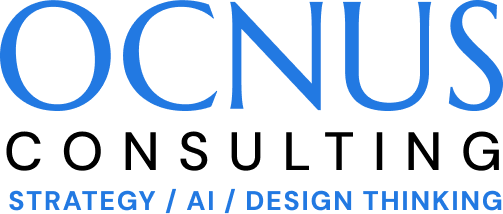AI and the Future of Work: In Praise of Idleness
An essay by Dr Rob Leach
In William Hogarth’s Eighteenth-Century painting, The Idle ’Prentice Executed at Tyburn, the unfortunate Tom Idle meets his grim fate at the gallows. The painting is a sermon in oils expressing the Protestant belief that the wages of indolence is death. What will happen to us, then, if AI takes all our jobs? Will idleness be our ultimate demise?
The current AI transformation is different from previous industrial revolutions in many ways. Specifically, knowledge workers—for example, lawyers, accountants, marketers, consultants, and software engineers—long insulated from automation’s ravages may find themselves surplus to requirements.
Manual workers have a longer runway to redundancy. Robotic dexterity lags behind AI’s information processing capacity. The automatons are coming for blue-collar jobs, but they are walking with an unsteady gait. However, white-collar workers don’t have much time. The starter’s gun has fired, and AI agents are racing into white-collar professions.
Paul Roetzer, a noted marketing and AI consultant, offers a front-line industry perspective on how AI will reshape businesses. The sector Roetzer worries about most in terms of lack of preparedness is professional services. The United States has roughly 133 million full-time jobs, of which 100 million are knowledge workers who think and create for a living. “Anyone who considers themselves a knowledge worker,” Roetzer writes, “will be impacted in the next 12 to 24 months, significantly.”
The OECD and the World Economic Forum make similar predictions. The Australian federal government’s recent Future of Work inquiry acknowledges AI’s potential for increasing productivity, but it also highlights the risk of job losses, growing inequality, and social disruption.
In the C-suites at the top end of town, there is much strategising about reducing mid-level head counts. AI agents can already code, analyse data, and create strategic plans, and they are improving at giddying speed. OpenAI CEO Sam Altman has been vocal about the potential consequences, warning that AI could “break capitalism” unless significant accommodations are made.
Is this the end of the world of work as we know it? Will jobs disappear, leaving us to languish on a Universal Basic Income? Not necessarily. Historically, technological revolutions have eventually created more jobs than they destroyed. Optimists like to reference the Jevons paradox and comfortably assume that markets will solve the challenge.
Recently, Vice President JD Vance, whilst scolding the Europeans in Paris, stated that American workers would benefit from AI’s “most immediate applications.” He’s right in the very short term, but where’s the plan for the significant disruptions coming much sooner than most seem to think?
As it is often said, making predictions, especially about the future, is rather difficult. But it’s indisputable that AI-driven automation will create profound dislocations in the job market. Even if the optimists are correct and as many new jobs can be created as old ones are destroyed, is this not a good moment to pause and think?
Most people I know want to work. They want to be productive and contribute to society. And the COVID lockdowns highlighted the importance of social connections in the workplace. However, at the same time, many say they would like to work fewer hours, be less stressed, prioritise their health and fitness, have more patience with their children, spend more time with their partners, and pursue satisfying recreation.
The idea that we should spend most of our lives at work is a relatively modern phenomenon. Richard Lee’s research on the !Kung San of the Kalahari upended Western assumptions about pre-industrial hardship. Rather than eking out a nasty, brutish, and short existence, the !Kung San live in relative comfort and good health. They only spend 15 to 20 hours per week on subsistence tasks and have ample leisure time. American anthropologist Marshall Sahlins described this as the “Original Affluent Society.” Indigenous Australians, living a similar lifestyle, flourished for tens of thousands of years before colonisation.
In 1935, Bertrand Russell wrote, “The idea that work is a virtue and idleness a vice is deeply ingrained in our culture, yet it is an idea that we should challenge.” His book, In Praise of Idleness, argues that modern technology should liberate us from excessive work. Idleness, Russell maintained, is “…essential to the well-being of human beings.” Unlike Hogarth, Russell’s vision of idleness was not of dissolution through venality and pints of gin. Instead, being liberated from toil would allow for creativity, social interaction, and personal fulfilment: “We might discover that life is richer and more rewarding when we embrace idleness.”
The massive productivity increases that the AI revolution will create can free us from spending most of our lives at work. But will the seemingly inescapable social pressure to own more stuff mean that we keep drudging away, materially richer but living lives of quiet desperation?
Did I use AI when crafting this essay? Most definitely, from start to finish. But I also spent many hours reading, writing, listening to commentators, pestering my acquaintances and boring my girlfriend with my latest theories and obsessions. This essay is very much a product of my idleness.
As the great modern philosopher Joe Strummer once said: “The future is unwritten.” We could harness AI to escape the shackles of work and live more meaningful lives. Lives where reading books, exercising, walking on the beach, or playing with our children do not feel like guilty pleasures stolen from time when we feel we should be at work. AI offers a unique opportunity for us to write our preferred future, one where embracing idleness could be our liberation.
By Rob Leach

